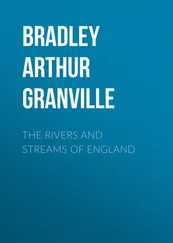Thomas Bulfinch - Oregon and Eldorado; or, Romance of the Rivers
Здесь есть возможность читать онлайн «Thomas Bulfinch - Oregon and Eldorado; or, Romance of the Rivers» — ознакомительный отрывок электронной книги совершенно бесплатно, а после прочтения отрывка купить полную версию. В некоторых случаях можно слушать аудио, скачать через торрент в формате fb2 и присутствует краткое содержание. ISBN: , Жанр: foreign_antique, foreign_prose, на английском языке. Описание произведения, (предисловие) а так же отзывы посетителей доступны на портале библиотеки ЛибКат.
- Название:Oregon and Eldorado; or, Romance of the Rivers
- Автор:
- Жанр:
- Год:неизвестен
- ISBN:http://www.gutenberg.org/ebooks/38774
- Рейтинг книги:3 / 5. Голосов: 1
-
Избранное:Добавить в избранное
- Отзывы:
-
Ваша оценка:
- 60
- 1
- 2
- 3
- 4
- 5
Oregon and Eldorado; or, Romance of the Rivers: краткое содержание, описание и аннотация
Предлагаем к чтению аннотацию, описание, краткое содержание или предисловие (зависит от того, что написал сам автор книги «Oregon and Eldorado; or, Romance of the Rivers»). Если вы не нашли необходимую информацию о книге — напишите в комментариях, мы постараемся отыскать её.
Oregon and Eldorado; or, Romance of the Rivers — читать онлайн ознакомительный отрывок
Ниже представлен текст книги, разбитый по страницам. Система сохранения места последней прочитанной страницы, позволяет с удобством читать онлайн бесплатно книгу «Oregon and Eldorado; or, Romance of the Rivers», без необходимости каждый раз заново искать на чём Вы остановились. Поставьте закладку, и сможете в любой момент перейти на страницу, на которой закончили чтение.
Интервал:
Закладка:
"Having decided to leave here one of the pirogues, we set to work to fit up a boat of skins, upon a frame of iron which had been prepared at the armory at Harper's Ferry. It was thirty-six feet long, four feet and a half wide at top, and twenty-six inches wide at bottom. It was with difficulty we found the necessary timber to complete it, even tolerably straight sticks, four and a half feet long. The sides were formed of willow-bark, and, over this, elk and buffalo skins."
"June 29. – Capt. Clarke, having lost some notes and remarks which he had made on first ascending the river, determined to go up along its banks in order to supply the deficiency. He had reached the falls, accompanied by his negro-servant York, and by Chaboneau, the half-breed Indian interpreter, and his wife with her young child. On his arrival there, he observed a dark cloud in the west, which threatened rain; and looked around for some shelter. About a quarter of a mile above the falls he found a deep ravine, where there were some shelving rocks, under which they took refuge. They were perfectly sheltered from the rain, and therefore laid down their guns, compass, and other articles which they carried with them. The shower was at first moderate; it then increased to a heavy rain, the effects of which they did not feel. Soon after, a torrent of rain and hail descended. The rain seemed to fall in a solid mass, and, instantly collecting in the ravine, came rolling down in a dreadful torrent, carrying the mud and rocks, and every thing that opposed it. Capt. Clarke fortunately saw it a moment before it reached them, and springing up, with his gun in his left hand, with his right he clambered up the steep bluff, pushing on the Indian woman with her child in her arms. Her husband, too, had seized her hand, and was pulling her up the hill, but was so terrified at the danger, that, but for Capt. Clarke, he would have been lost, with his wife and child. So instantaneous was the rise of the water, that, before Capt. Clarke had secured his gun and begun to ascend the bank, the water was up to his waist; and he could scarce get up faster than it rose, till it reached the height of fifteen feet, with a furious current, which, had they waited a moment longer, would have swept them into the river, just above the falls, down which they must inevitably have been carried. As it was, Capt. Clarke lost his compass, Chaboneau his gun, shot-pouch, and tomahawk; and the Indian woman had just time to grasp her child before the net in which it lay was carried down the current."
"July 4. – The boat was now completed, except what was in fact the most difficult part, – the making her seams secure. Having been unsuccessful in all our attempts to procure tar, we have formed a composition of pounded charcoal with beeswax and buffalo-tallow to supply its place. If this resource fail us, it will be very unfortunate, as, in every other respect, the boat answers our purpose completely. Although not quite dry, she can be carried with ease by five men: she is very strong, and will carry a load of eight thousand pounds, with her complement of men.
"July 9. – The boat having now become sufficiently dry, we gave it a coat of the composition, then a second, and launched it into the water. She swam perfectly well. The seats were then fixed, and the oars fitted. But after a few hours' exposure to the wind, which blew with violence, we discovered that nearly all the composition had separated from the skins, so that she leaked very much. To repair this misfortune without pitch was impossible; and, as none of that article was to be procured, we were obliged to abandon her, after having had so much labor in the construction.
"It now becomes necessary to provide other means for transporting the baggage which we had intended to stow in her. For this purpose, we shall want two canoes; but for many miles we have not seen a single tree fit to be used for that purpose. The hunters, however, report that there is a low ground about eight miles above us by land, and more than twice that distance by water, in which we may probably find trees large enough. Capt. Clarke has therefore determined to set out by land for that place, with ten of the best workmen, who will be occupied in building the canoes, till the rest of the party, after taking the boat to pieces and making the necessary deposits, shall transport the baggage, and join them with the other six canoes.
"Capt. Clarke accordingly proceeded on eight miles by land; the distance by water being twenty-three miles. Here he found two cottonwood-trees, and proceeded to convert them into boats. The rest of the party took the iron boat to pieces, and deposited it in a cache , or hole, with some other articles of less importance.
"July 11. – Sergeant Ordway, with four canoes and eight men, set sail in the morning to the place where Capt. Clarke had fixed his camp. The canoes were unloaded and sent back, and the remainder of the baggage in a second trip was despatched to the upper camp.
"July 15. – We rose early, embarked all our baggage on board the canoes, which, though eight in number, were heavily laden, and at ten o'clock set out on our journey.
"July 16. – We had now arrived at the point where the Missouri emerges from the Rocky Mountains. The current of the river becomes stronger as we advance, and the spurs of the mountain approach towards the river, which is deep, and not more than seventy yards wide. The low grounds are now but a few yards in width; yet they furnish room for an Indian road, which winds under the hills on the north side of the river. The general range of these hills is from south-east to north-west; and the cliffs themselves are about eight hundred feet above the water, formed almost entirely of a hard black rock, on which are scattered a few dwarf pine and cedar trees.
"As the canoes were heavily laden, all the men not employed in working them walked on shore. The navigation is now very laborious. The river is deep, but with little current; the low grounds are very narrow; the cliffs are steep, and hang over the river so much, that, in places, we could not pass them, but were obliged to cross and recross from one side of the river to the other in order to make our way."
CHAPTER VII.
JOURNEY CONTINUED
July 4. – Since our arrival at the falls, we have repeatedly heard a strange noise coming from the mountains, in a direction a little to the north of west. It is heard at different periods of the day and night, sometimes when the air is perfectly still and without a cloud; and consists of one stroke only, or of five or six discharges in quick succession. It is loud, and resembles precisely the sound of a six-pound piece of ordnance, at the distance of three miles. The Minnetarees frequently mentioned this noise, like thunder, which they said the mountains made; but we had paid no attention to them, believing it to be some superstition, or else a falsehood. The watermen also of the party say that the Pawnees and Ricaras give the same account of a noise heard in the Black Mountains, to the westward of them. The solution of the mystery, given by the philosophy of the watermen, is, that it is occasioned by the bursting of the rich mines of silver confined within the bosom of the mountain. 2 2 There are many stories, from other sources, confirmatory of these noises in mountainous districts. One solution, suggested by Humboldt, – who does not, however, record the fact as of his own observation, – is, that "this curious phenomenon announces a disengagement of hydrogen, produced by a bed of coal in a state of combustion." This solution is applicable only to mountains which contain coal, unless chemical changes in other minerals might be supposed capable of producing a similar effect.
Интервал:
Закладка:
Похожие книги на «Oregon and Eldorado; or, Romance of the Rivers»
Представляем Вашему вниманию похожие книги на «Oregon and Eldorado; or, Romance of the Rivers» списком для выбора. Мы отобрали схожую по названию и смыслу литературу в надежде предоставить читателям больше вариантов отыскать новые, интересные, ещё непрочитанные произведения.
Обсуждение, отзывы о книге «Oregon and Eldorado; or, Romance of the Rivers» и просто собственные мнения читателей. Оставьте ваши комментарии, напишите, что Вы думаете о произведении, его смысле или главных героях. Укажите что конкретно понравилось, а что нет, и почему Вы так считаете.












